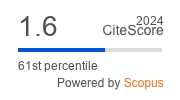Malaysian Journal of Mathematical Sciences, June 2025, Vol. 19, No. 2
Infinite Number of Changes of Sign for A Difference of Two Number-Theoretic Functions
Bellaouar, D. and Boudaoud, A.
Corresponding Email: bellaouar.djamel@univ-guelma.dz
Received date: 20 March 2024
Accepted date: 26 December 2024
Abstract:
In this paper, we present two number-theoretic functions $F$ and $G$ for
which $p_{r}F\left( n\right) -p_{r-1}G\left( n\right) $ is both positive and negative infinitely often, where $n$ has at least $k$ distinct prime factors ($k\geq 1$) and $\left( p_{r-1},p_{r}\right) $ is a couple of two
consecutive primes. To be precise, we will construct infinite sequences $
\left( n_{i}\right) _{i\geq 1},\left( m_{i}\right) _{i\geq 1}$ such that,
\begin{align*}
\frac{F\left( n_{i}\right) }{G\left( n_{i}\right) }>\frac{p_{r-1}}{p_{r}}>
\frac{F\left( m_{i}\right) }{G\left( m_{i}\right) },\text{ for }i=1,2,\ldots,
\end{align*}
where each $n_{i}$ and $m_{i}$ has $k$ distinct prime factors and $F\left(
t\right) $ and $G\left( t\right) $ are either the Kernel or the Euler's function
of the positive integer $t$.
Keywords: arithmetic functions; changes sign infinitely often; prime numbers; nonstandard analysis









